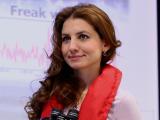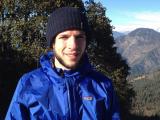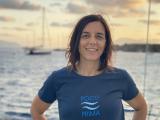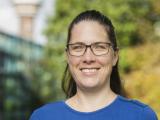Editorial board
Editors of this journal work on a purely voluntary basis without remuneration in line with the not-for-profit philosophy of the EGU.
Chief editors

Ira Didenkulova
University of Oslo
Norway

Axel Kleidon
Max-Planck-Institut für Biogeochemie
Biospheric Theory and Modelling
Biospheric Theory and Modelling
Germany

Gabriele Messori
Uppsala University
Dept. of Earth Sciences
Dept. of Earth Sciences
Sweden

Editors
Vivek Arora
Environment and Climate Change Canada
Canadian Centre for Climate Modelling and Analysis
Canadian Centre for Climate Modelling and Analysis
Canada
Somnath Baidya Roy
Indian Institute of Technology Delhi
India

Richard Betts
University of Exeter
Global Systems Institute
Department of Geography
Global Systems Institute
Department of Geography
United Kingdom

Anping Chen
Colorado State University
United States
Min Chen
University of Wisconsin-Madison
Forest and Wildlife Ecology
Forest and Wildlife Ecology
United States
Michel Crucifix
Universite catholique de Louvain
UCL
ELIC
UCL
ELIC
Belgium
Roberta D'Agostino
Consiglio Nazionale delle Ricerche
Istituto di Scienze dell'Atmosfera e Clima
Istituto di Scienze dell'Atmosfera e Clima
Italy
Sagnik Dey
Indian Institute of Technology Delhi
Indian Institute of Technology Delhi
Atmospheric Sciences
Indian Institute of Technology Delhi
Atmospheric Sciences
India
C.T. Dhanya
Indian Institute of Technology Delhi
Indian Institute of Technology Delhi
Department of Civil Engineering
Indian Institute of Technology Delhi
Department of Civil Engineering
India

Ira Didenkulova
University of Oslo
Norway

Jonathan Donges
Potsdam Institute for Climate Impact Research
Earth System Analysis
Earth System Analysis
Germany
James Dyke
University of Exeter
Global Systems Institute
School of Geography & Environment
Global Systems Institute
School of Geography & Environment
United Kingdom
Christian Franzke
Pusan National University
Center for Climate Physics, Institute for Basic Science
Climate System
Center for Climate Physics, Institute for Basic Science
Climate System
Korea, Republic Of
Laurens Ganzeveld
Wageningen University
Environmental sciences; Meteorology and Air Quality
Environmental sciences; Meteorology and Air Quality
Netherlands
Andrey Gritsun
Institute of Numerical Mathematics
Russian Federation
Martin Heimann
Max Planck Institute for Biogeochemistry
Biogeochemical Systems
Biogeochemical Systems
Germany

Daniel Kirk-Davidoff
EPRI
Energy Systems and Climate Analysis
Energy Systems and Climate Analysis
United States

Axel Kleidon
Max-Planck-Institut für Biogeochemie
Biospheric Theory and Modelling
Biospheric Theory and Modelling
Germany

Kai Kornhuber
International Institute for Applied Systems Analysis
Energy, Climate and Environment (ECE)
Energy, Climate and Environment (ECE)
Austria


Ben Kravitz
Indiana University
Earth and Atmospheric Sciences
Earth and Atmospheric Sciences
United States


Yun Liu
Texas A & M University
Department of Oceanography, GERG
Department of Oceanography, GERG
United States

Olivia Martius
University of Bern
Institute of Geography
Institute of Geography
Institute of Geography
Institute of Geography
Switzerland

Gabriele Messori
Uppsala University
Dept. of Earth Sciences
Dept. of Earth Sciences
Sweden


Sebastian G. Mutz
University of Glasgow
School of Geographical & Earth Sciences
School of Geographical & Earth Sciences
Germany


Claudia Pasquero
University of Milano - Bicocca
Italy

Kira Rehfeld
University of Tübingen
Geo- and Environmental Research Center
Department of Geoscience
Geo- and Environmental Research Center
Department of Geoscience
Germany
Sibyll Schaphoff
Potsdam Institute of Climate Impact Research
RD 1
RD 1
Germany
Sonia Seneviratne
ETH Zürich
Switzerland
Jadranka Sepic
University of Split
Croatia
Steven Smith
Joint Global Change Research Institute
Pacific Northwest National Laboratory
Pacific Northwest National Laboratory
United States

Fubao Sun
Chinese Academy of Sciences
Institute of Geographic Sciences and Natural Resources Research
Institute of Geographic Sciences and Natural Resources Research
China

Parvadha Suntharalingam
University of East Anglia, UK
School of Environmental Sciences
School of Environmental Sciences
United Kingdom
Claudia Timmreck
Max-Planck-Institut für Meteorologie
AES
AES
Germany

Karin van der Wiel
Royal Netherlands Meteorological Institute
RD weather and climate models
RD weather and climate models
Netherlands


Lan Wang-Erlandsson
Stockholm University
Stockholm Resilience Centre
Stockholm Resilience Centre
Stockholm Resilience Centre
Stockholm Resilience Centre
Sweden


Martin Wild
ETH Zurich
Institute for Atmospheric and Climate Science
Institute for Atmospheric and Climate Science
Switzerland


Zhenghui Xie
Institute of Atmospheric Physics,Chinese Academy of Sciences
National Key Laboratory of Earth System Numerical Modeling and Application
National Key Laboratory of Earth System Numerical Modeling and Application
China


Ning Zeng
University of Maryland
Department of Atmospheric and Oceanic Science and Earth System Science Interdisciplinary Center
Department of Atmospheric and Oceanic Science and Earth System Science Interdisciplinary Center
United States

Kirsten Zickfeld
Simon Fraser University
Geography
Geography
Canada

